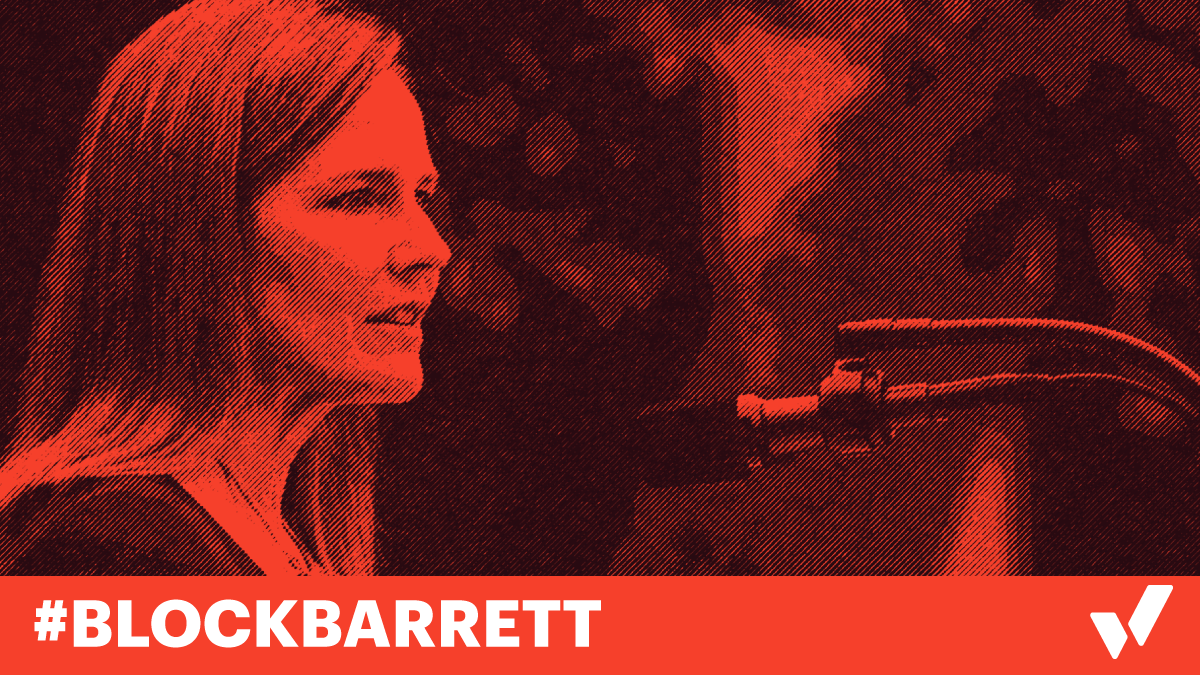Another RFRA, Another License to Discriminate Against Women
Last week, the West Virginia House Judiciary Committee passed a license to discriminate. No, that’s not what they called it, but that is what the West Virginia Religious Freedom Restoration Act (RFRA) would amount to. The bill, HB 4012, would allow some people to try and get out of following laws they don’t like. And when that happens, individuals, and too often women, face the consequences. The bill now moves to the House floor, so there is still time for West Virginia legislators to reject this dangerous law. This is critical because when some people try and use RFRA as an opt-out, it threatens to undermine many of the important legal protections West Virginians enjoy.
 Too Many RFRAs
Too Many RFRAs
By now, many people have heard about RFRA laws. The federal RFRA was used in Hobby Lobby to allow some employers to deny their employees insurance coverage of birth control. Some states have their own versions, which likewise could be used to allow individuals to get out of laws they don’t want to follow by claiming the law somehow conflicts with their religious beliefs. Fortunately, there has been recognition of the harmful impact of these laws, and accompanying outrage. Last year, the vast majority of RFRA bills that were introduced in state legislatures were defeated. But sometimes these laws pass, despite the outrage or attempts to make the bill better. That’s what happened in Indiana last year. Already, there are attempts to use the Indiana RFRA to undermine existing protections for LGBT individuals.
West Virginians Don’t Want RFRA
West Virginians recognize the harm RFRA poses, and are not okay with what RFRA could do in their state. That much was clear at a hearing last week when more than 2/3 of those testifying spoke up to oppose the bill. Groups came out in full force against HB 4012, including civil rights advocates and a business coalition made up of prominent business leaders in the state. These groups understand the harmful impact RFRA will have in West Virginia and want to make clear to their elected officials that it should not pass. Civil rights advocates made clear RFRA laws make it easier to discriminate, business leaders insisted that sanctioning discrimination is bad business. Given the outrage, sponsors of the bill have resorted to sneaky tactics. They temporarily removed the bill from consideration to make minor revisions and then held a surprise hearing and vote yesterday before advocates and the public even had a chance to read the new language! Who knows what shady dealings legislators will resort to next in order to push RFRA over the outcry from the people they represent.
The Threat to Women
What many people don’t know is that the harm of these bills, HB 4012 included, extends beyond LGBTQ discrimination. Just as we saw in Hobby Lobby, RFRA laws are often used to undermine protections for women and target reproductive rights. In fact, when Indiana’s law came under attack, the governor tried to defend the bill by pointing to Hobby Lobby, saying that the state needed its own version of the federal law. In other words, it’s not about discriminating against LGBTQ people, it’s about discriminating against women.
Because RFRA laws have been used to justify religious beliefs trumping women’s needs, HB 4012 could threaten women’s health, well-being, and economic security. For example, a doctor may refuse to provide appropriate medical treatment to a woman suffering from an ectopic pregnancy because of religious objections to abortion or a woman may be unable to get birth control because the only pharmacist in her rural town refuses to fill her prescription.
These examples aren’t far-fetched. Attempts to deny health care and hurt women under the guise of religious freedom are alive and well. Health care providers in other states have refused to provide emergency contraception to rape survivors, claiming that to do so would violate their religious beliefs, and refused to provide in vitro fertilization to a lesbian couple. A high school teacher was fired for her job for being unmarried and pregnant. A RFRA in WV could have a chilling effect on legislative efforts to prohibit discrimination of this kind. Given the chance to opt-out of anti-discrimination protections, individuals will discriminate and women will be left to deal with the consequences.
We Need to Stop HB 4012
It’s essential to expose the far-reaching and devastating potential this bill could have on West Virginia women. Laws intended to protect women’s health and well-being shouldn’t be optional, and West Virginia’s legislature shouldn’t pass laws that make it easier to discriminate. When it comes time to vote for HB 4012, West Virginia legislators should understand exactly what they are voting for- a license to discriminate.




